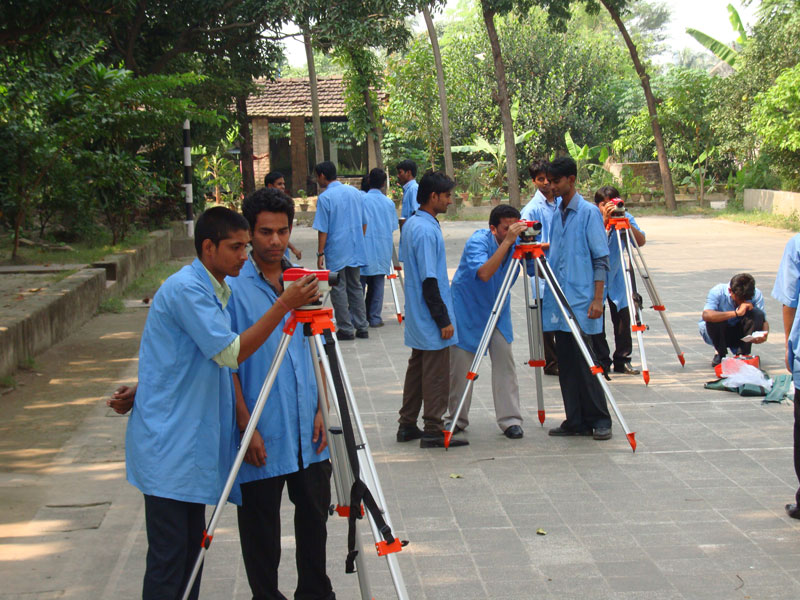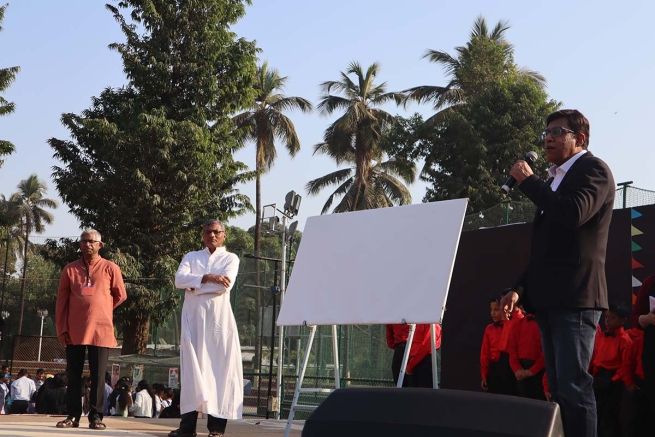INDIA: Don Bosco Institute Helps Youth Access Employment in High Growth Job Sectors

(MissionNewswire) India, with close to 1.2 billion people, has the world’s fourth-largest economy and will soon have the largest and youngest workforce the world has ever seen, according to the World Bank. With more than 400 million poor people, or one-third of the world’s poor, generating growth and employment opportunities is a priority in the country. Although more than 53 million people escaped poverty between 2005 and 2010, they remain vulnerable to falling back below the poverty line. And according to the World Bank, due to population growth and migration into India’s urban centers, the absolute number of poor people in some of India’s poorest states actually increased during the last decade.
Lack of educational opportunities in the country are often due to issues of caste, class and gender and with 44 percent of the workforce illiterate, there is much work to be done. Less than 10 percent of the working-age population has completed a secondary education, and too many secondary graduates do not have the knowledge and skills to compete in today’s changing job market.
Located in eastern India, the Don Bosco Self Employment Research Institute in West Bengal is helping poor youth break the cycle of poverty by educating and rehabilitating school dropouts and providing them with access to livable wage employment and self-employment opportunities. The Institute is partnering with government and non-governmental organizations to help poor youth gain the skills necessary to succeed in competitive employment sectors and become contributing members of their communities.
The Institute offers several vocational training programs including electrical house wiring, fabrication and welding, garment making, refrigeration and air conditioning, construction and information and communication technology. These programs are offered to both new students and those who have been working in their trades for years but have never received formal education. Many are in need of updated training and additional certification in order to receive promotions or advance their own businesses.
Training for many of the courses is short, held in three month segments, with competency tests held at the end of the term. Successful candidates are awarded certificates from the Institute and from India’s National Council for Vocational Training. Graduates then have access to job placement services which include employment interviews held right on the Institute’s campus and assistance from an employment liaison who helps graduates prepare to enter the workforce. Those who opt for self-employment are helped with loans and procurements and product marketing. Last year, 620 men and women successfully completed vocational training at the Institute.
“The Institute has a very successful program,” says Father Mark Hyde, executive director of Salesian Missions, the U.S. development arm of the Salesians of Don Bosco. “India has a growing economy and for poor youth to be successful, they need access to training in growing sectors and help finding and retaining employment. This program accomplishes both.”
Most recently, the Institute has developed a three month skill development training program in garment sewing on high speed machines, housekeeping for the hospitality industry and retail sales. The program was created for rural youth living below the poverty line and is open to men and women from 18 to 35 years of age. Program candidates must be ready to join the workforce after graduation and be willing to relocate to cities and other areas for work.
The many vocational programs within the Institute train close to 620 students a year and are a result of partnerships that have been set up with local government programs. Many graduating students go on to train at other sites in various rural communities throughout India.
“Students graduating from the Institute have the skills and talent necessary to be successful in the workforce but they are also ready to pay it forward,” adds Fr. Hyde. “Our students are able to train others and make a difference in their communities and local economies.”
###
Sources:
Don Bosco Self Employment Research Institute
World Bank – India




